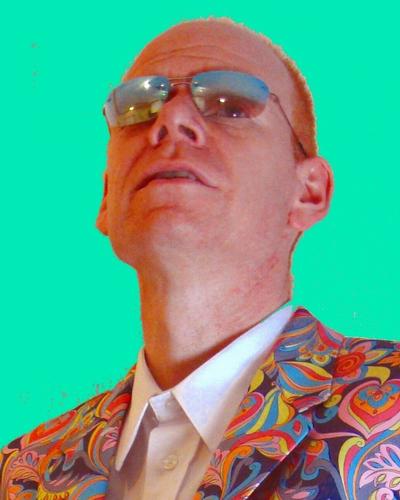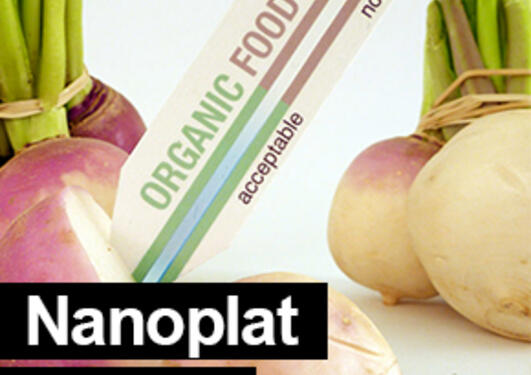Interdisciplinary studies of the ethical and societal implications of nanotechnology
This project, funded by the NFR, looked at the ethical and societal aspects of nanoscience and nanotechnology in a long term and broad-scoped perspective.

Main content
Nanoethics was one of the four thematics areas in UiB's strategic focus on nanoscience, and SVT was also responsible for teaching nanoethics in UiB's study programmes in nanotechnology and nanoscience. The research area was organized in separate research projects; of which this project was one of the most important.
The term nanotechnology refers to a range of different technologies where essential components or processes occur on the nanometre scale. A series of important components in nature, for example atoms, viruses and cell nuclei, are found precisely in this size range. Because nano refers to just a scale length, there are a number of very different projects, products and applications that go under the label nanoscience and nanotechnology.
These diverse projects and applications can make visible new aspects of, or blow new life into, already existing debates about science and technology and how they interact with society. For example, some individuals experience some of the developing traits of nanoscience and nanotechnology as problematical, negative, ambiguous or uncomfortable, while others perhaps experience the degree and speed of change as uncomfortable or problematic. When we work with nanoethics, we are involved in illuminating the positive, negative, ambiguous and unpredictable aspects of the development of nanoscience and nanotechnology.
About the project
Its mode of work consisted of combining ethical and philosophical analysis with “workshops” where dialogue took place between ethicists, philosophers, nano-researchers and participants from other disciplines (including social and clinical medicine and social science). With help from this methodological platform, we applied perspectives from ethics, theory of science (including post-normal science), and science, technology studies to map out broad-scoped societal and ethical issues, as well as research the challenges facing regulation and governance of nanoscience and nanotechnology, particularly in the face of different forms of scientific knowledge and uncertainty.
The project's principle objectives
A. To map and investigate ethical and societal issues that are emerging from the complex interplay between nature and culture in the development and use of nanotechnology.
Kjølberg, K. and Wickson, F. (2007) ‘Social and Ethical Interactions with Nano: Mapping the early literature’ Nanoethics 1:2, pp. 89-104.
Kjølberg, K. and Wickson, F. (2009). ‘Nano meets Macro: Social perspectives on nanoscale sciences and technologies’, (Pan Stanford Publishing, Singapore).
Wickson, F. and Kjølberg, K. (2009) ‘NanoVisions: An Experiment with NanoScientists’ in Visions of Nanotechnology (eds) Stefan Gammel and Arianna Ferrari (AKA Verlag: Berlin) pp. 165-183.
B. To develop an interdisciplinary understanding of scientific uncertainty and the quality of the knowledge that is the basis for regulation and management. Especially an understanding of the responsibility of different actors, the importance of risk and uncertainty analysis, non-scientific knowledge as a basis for decision-making and the participatory methods used to deal with uncertainty in decision-making and management.
Wickson, F. (2007) ‘Public engagement means listening as well as talking’ Nature 448/9, p. 644.
Gillund, F., Wickson, F. and Myhr, A., ‘The Goverence of Nanoparticles: Science, Risk, Uncertainty and Precaution' in Kjølberg and Wickson (2009) Nano meets Macro: Social perspectives on nanoscale sciences and technologies, (Pan Standford Publishing, Singapore).
Kjølberg, K. and Strand, R. ’European Strategies for Regulating Nanoparticles’, in van der Sluijs, J., Ravetz, J. and Kjølberg, K. (eds). ‘Innovative approaches for the governance of complex science and technology issues: Towards a post normal practice’, coming in 2009.
C. To research the existence and meaning of “spontaneous philosophy” and ideology for scientific, public and policy discourses.
Science:
Wickson, F. ‘Narratives of Nature & Nanotechnology’ (2008) Nature Nanotechnology 3(6), pp. 313-315.
Wickson, F., Grieger, K. and Baun, A. (to be published soon) ‘Nature and Nanotechnology: science, ideology and policy’, in Kenneth A. Gould & Robert J. Torres (eds.) Nanotechnology, Social Change and the Environment (Rowman & Littlefield: Lanham).
Policy:
Kjølberg, K., Strand, R., Delgado, G.C. and Wickson, F. (2008) ‘Models of Governance for Converging Technologies’ Technology Assessment and Strategic Management 20(1), pp. 83-97.
Public:
Kjølberg, K. ‘Representations of nanotechnology in Norwegian newspapers - implications for public participation’, NanoEthics, coming in April 2009.
Kjølberg, K. ’Nanoteknologi i norsk offentlighet’, Nytt Norsk Tidsskrift, 3/2008, pp. 252-261.
Kjølberg, K. ’Vidunderlig ny nanoteknologi’, editorial in Morgenbladet, 19.09.2008.
Kjølberg, K. ‘Representations of nanotechnology in the public sphere’, in Kjølberg, K. and Wickson, F. (2009) Nano meets Macro:Social perspectives on nanoscale sciences and technologies, (Pan Standford Publishing, Singapore).
D. To explore the state of scientific knowledge in published examples of nano-science philosophy, as well as nano-scientists’ understanding of the ethical and societal implications of their work.
Wickson, F., Nepstad, R., Am, T. and Winkler, M. (2008) ‘Reflections on Philosophy of Nanoscience from Nanoscience Practitioners’ Nordic Journal of Applied Ethics (Etikk i Praksis) 2(2), pp. 73-92.
E. To develop a richer theoretical understanding by improving the communication and flow of theoretical insights across the “two cultures” of nanoscience / technology and humanities/social science-based research in nano.
Final conference
End-of-NANOMAT-Project Conference: 14-15 December 2009, SVT, Student Senter, rom 4, Bergen, Norway
The NANOETHICS research activity of SVT (Senter for vitenskapsteori, Centre for the Study of the Sciences and the Humanities, University of Bergen) was founded in 2006. Its major project so far has been Interdisciplinary Studies of Social and Ethical Implications of Nanotechnology, funded by the NANOMAT programme of the Research Council of Norway as well as the NANO@UIB programme. The project has involved a number of national and international scholars and scientists, the main researchers being Fern Wickson and Kamilla Lein Kjølberg. Roger Strand initiated and led the project.
Results from the project have been disseminated in more than 20 publications and 20 international conferences and workshops. At this end-of-project conference, we will give an overview of our research so far within the ELSA of nanoscience and nanotechnology.
Target audience
ELSA researchers and STS scholars with an interest in nano
researchers and students of nanoscience and nanotechnology
decision-makers with an interest in nano
Programme – Monday 14 December 10.00-17.00
10.00-10.45 Introduction and overview of the project (Roger Strand & Fern Wickson)
11.00-12.00 Ideology in nano discourse (Fern Wickson & Roger Strand)
12.00-13.00 Lunch*
13.00-14.00 Broad-scoped nanoethics (Roger Strand & Fern Wickson)
14.15-14.45 Public engagement and nano (Ana Delgado)
14.45-15.15 Nano in Latin America (Gian Carlo Delgado)
15.30-17.00 Book launch: NANO meets MACRO (Kamilla Lein Kjølberg), with refreshments
19.00- Conference dinner*
Programme – Tuesday 15 December 09.00-15.30
09.00-10.30 Understanding nano images (Roger Strand, Rasmus Slaattelid & Alice Benessia)
10.45-11.15 Nano: Risk and Uncertainty (Fern Wickson)
11.30-12.00 Interdisciplinarity in nano research & education (Bodil Holst)
12.00-13.00 Lunch*
13.00-13.45 The project seen from a distance (Silvio Funtowicz & Anders Braarud-Hansen)
14.00-15.30 The next generation of SVT projects: Value Isobars, Imag(in)ing the Nanoscale, Technolife, Reflexive Systems Biology (Matthias Kaiser, Rasmus Slaattelid, Kjetil Rommetveit & Roger Strand)

